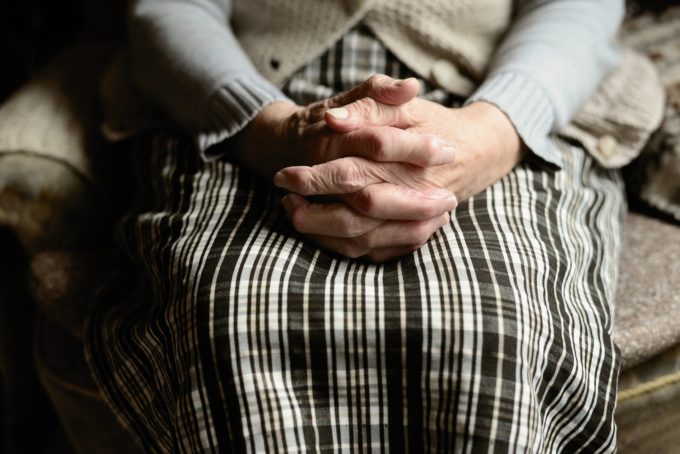Category: Mesothelioma

Mesothelioma Centers of Excellence are Open for Patients
We frequently suggest to patients and patient’s families to seek out a Mesothelioma Center of Excellence if diagnosed with this rare disease. For many, this includes traveling to get care at one of these centers. When the pandemic was first at its peak, a lot of travel was suspended and many just did not feel comfortable traveling away from home. For some who live locally to their Mesothelioma Center of Excellence they were able to have treatment but that was not the case for everyone.
Each state has lifted some restrictions that were incorporated during the crisis of the pandemic, and the Mesothelioma Centers of Excellence are open. Many physicians have adapted to telehealth visits to accommodate patients during the pandemic. Thankfully, we are a world of technology and many test results, scans, and lab values can be expedited from your hometown medical center to an expert of mesothelioma, allowing a lot of preliminary work to be done prior to your arrival.
If you are traveling to a Mesothelioma Center of Excellence, we have some suggestions:
- Inquire about their protocols for arrival of appointments. Do you need to call and announce your arrival prior to coming into the office?
- Can a family member or friend accompany for the visit? If not, can you call in and be placed on speaker phone while the consult is active with physician and patient?
- Are you required to bring hard copies of scans, reports, etc.?
- Will your visit require an overnight stay at local hospital? If so, can they help with accommodations?
- Asking what you should expect during this visit. The Mesothelioma Center consists of many medical professionals. Will you meet them in person?
These are a few suggestions to make your visit more streamlined. We urge you to get to a Mesothelioma Center of Excellence as soon as possible, as this is a very aggressive disease. The medical professionals realize this is a difficult situation coupled with the world’s current situation. We want you to know the centers are here for you.
There have also been many volunteer opportunities that continue to be available to help you facilitate your treatment for your mesothelioma. For example, Angel Flights has been successful in transporting patients for treatments and returning them home. Please reach out to us or a Mesothelioma Center so we can assist you with making the connections that can help you with your disease.

Coronavirus & Mesothelioma Treatment: One Patient’s Story
The COVID-19 pandemic upended our usual routine and impacted all of our lives. For people that needed medical treatment it became a different experience. Having treatment for anything but coronavirus related illness became the exception. No visitors were allowed in the hospitals for patients no matter what their diagnosis. Many people put off necessary treatment for a later time. Facing cancer at any time is frightening. Facing treatment for a rare cancer such as malignant mesothelioma, alone without your loved ones, can add another layer of stress.
Reading and hearing about people’s experiences you think would prepare you for seeing it in person. Whether it is physical or psychological the suffering is real.
Our patient was a middle aged man who has malignant pleural mesothelioma. His presenting symptom was a cough that would not go away. He was worked up for it and he was a surgical candidate which he opted to have. The time between his symptoms and being diagnosed was a few months. Things were on track for surgery, and he lived locally near his Mesothelioma Center. Things were lining up for him in a timely fashion, but then the pandemic came and things changed.
It is known that patients facing a cancer diagnosis do better with family support. Since most cancer treatment is on an outpatient basis that is where the majority of support happens. However, the period in the hospital is unfamiliar and frightening – it can be terrifying. Our patient was dropped at the hospital and stayed in for greater than 30 days. He had a support system, but no visitors were allowed into the hospital. For his inpatient stay he remembers being confused, afraid, and convinced that he was dying. During this month-long stay he praised the staff of the hospital, but explained that not to see your loved ones when you are confused was too much. Frequent phone calls were no substitute for seeing someone who is supporting you through this stressful time. His hospital course was complicated and since discharge he has been experiencing many different emotions. Usually someone in control of his emotions, he finds himself crying frequently and unexpectedly. As he is processing this trauma he and his loved ones are realizing what an important part that support plays in a person’s physical and psychological recovery.
Treatment for mesothelioma is difficult under the best of circumstances but during the pandemic it became harder. As people start to come for specialized treatment to a Mesothelioma Center of Excellence please know that their team is very tuned in to how vital support from their loved ones is during this time.

Top reasons to be seen at a Mesothelioma Center of Excellence
We always recommend that patients diagnosed or suspected to have malignant mesothelioma be seen at a dedicated Mesothelioma Center of Excellence for diagnosis and treatment by an experienced medical team.
The pandemic we are currently in has made it difficult and sometimes impossible to do this. As people all over the country follow distancing guidelines, we are realizing in our own worlds that we cannot be teachers, hairdressers, cook like chefs, do DYI projects like on TV, and we cannot treat ourselves for medical issues.
One of the perspectives we are gaining out of this pandemic is the one to respect experience. There are skill sets involved in being an expert. With experience comes relationships – respect what experience can bring to your situation.
The pandemic has allowed us to re-examine our relationships with each other and what is important to us. Caring for patients with malignant mesothelioma is complex. Everyone is different and their expectations are different.
When we slowly get back to our lives before the pandemic and start looking to our experts for care, what should that care look like?
In 2017, The John A. Hartford Foundation and the Institute of Healthcare Improvement along with the American Hospital Association and the Catholic Health Association of the United States came up with the “4Ms.” These are four evidence-based elements of high-quality care. The guidelines are aimed at treatment of the older adult, but really apply to all.
- What Matters – what are the persons goals, what do they want?
- Medication – what medications are necessary? How do these medications affect the person’s mobility or cognition? Is that what they want?
- Mentation – is the person depressed? Are they suffering from delirium? Has their dementia been identified?
- Mobility – is the person safely able to move around? Are they falling? Are they safe?
In the Mesothelioma Center that we are very familiar with, these are standards of care. When you come to a Mesothelioma Center of Excellence you will be treated by experienced professionals that have incorporated these evidence-based practices into your care – before and after the pandemic.

How Mesothelioma Patients Can Take Care of Themselves During Coronavirus
As we continue social distancing, washing our hands, and staying in our homes, a new normal is settling in. For people that are dealing with malignant mesothelioma as well as the COVID- 19 virus, day to day living can be extremely stressful during these uncharted times. What can people who have malignant mesothelioma do day to day?
- Back to basics like eating right, high protein diet.
- Walking daily outside if able.
- Limiting your alcohol intake.
- Taking your medications as prescribed.
- Keeping your spirits up.
- Having a routine that includes adequate sleep.
- Limit your time watching the news and social media.
At times, fear creeps in for all of us. We fear what is going on around us, what is coming, when it will all end and when our “normal” lives come back. For those dealing with malignant mesothelioma either as a new diagnosis or have been living with the diagnosis, this is a particularly challenging time. An article in Psychology Today by Laura Markham PHD, “Coping with Fear in the Face of a Pandemic,” has suggestions for when worry and fear take hold of us.
- Use your pause button – stop and take several deep breaths to calm your body down.
- Notice what you are worried about – if it is something in the future, it might not happen and you cannot control it anyway.
- Calm your mind by taking charge of your thoughts – you can handle it.
- Empower yourself and your family – cultivate positivity.
- Consciously choose love instead of fear.
If you are under treatment for malignant mesothelioma there could be some specific questions requiring answers. Although the focus is on taking care of coronavirus patients in most hospitals and Centers of Excellence, the mesothelioma team is still available.
Call your team. If you don’t have a dedicated mesothelioma team, reach out – the experts are available. Remember you are not alone even when it feels that way.
Balancing Mesothelioma with the Coronavirus Pandemic
 When someone is diagnosed with malignant mesothelioma, the battle is both mental and physical. The symptoms are numerous and some more frightening than others. Mentally it can have an outsized effect on one’s peace of mind, affecting your physical wellbeing as well as your emotional wellbeing.
When someone is diagnosed with malignant mesothelioma, the battle is both mental and physical. The symptoms are numerous and some more frightening than others. Mentally it can have an outsized effect on one’s peace of mind, affecting your physical wellbeing as well as your emotional wellbeing.
So how does a mesothelioma patient keep mind and body in sync during a strenuous time like the coronavirus pandemic?
First, look around at yourself and jot down your physical symptoms. Put factual numbers to paper. A few strategies you might consider include:
- Monitor daily weight.
- Monitor calorie intake if you can, or just list what you eat.
- If you have an O2 sat monitor use that and record the findings.
- If you don’t have an O2 sat monitor monitor, record the distance you can walk each day.
Now that really is the easier part. Mental wellbeing can be a challenge. How do you keep your head in check and not get carried away to dark thoughts and fear? If you are having a hard time being calm, there is a fair amount of advice available. Here are some different approaches:
- Close your eyes, take a deep breath, and exhale slowly.
- Say out loud three things you are grateful for today.
- Connect with others. Talk with people you trust about your concerns and how you are feeling.
- Take a break from news, including social media.
If these ideas aren’t working, contact your primary care provider and they will try to help with your physical or mental challenges at this time. Reach out to your mesothelioma team. Remember that mesothelioma patients are high risk when it comes to coronavirus and the COVID-19 virus’ related respiratory symptoms.
You are not alone. These times are uncharted territory for all of us. We can get through it with help from one another.
Free Mesothelioma Patient & Treatment Guide
We’d like to offer you our in-depth guide, “A Patient’s Guide to Mesothelioma,” absolutely free of charge.
It contains a wealth of information and resources to help you better understand the condition, choose (and afford) appropriate treatment, and exercise your legal right to compensation.
Download Now